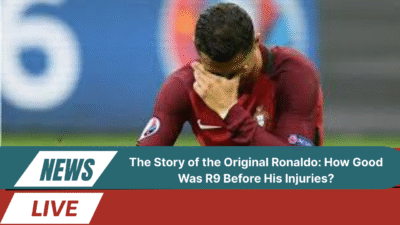Brighton & Hove Albion’s Moneyball strategy has become one of the most fascinating stories in modern football. How did a club once struggling in the lower leagues transform into a Premier League contender? Could it be that numbers, scouting, and careful strategy matter more than just big spending? This question has captivated analysts, fans, and even rival clubs. To understand why, we must look closely at how Brighton applied lessons from a broader sports strategy to the world’s most popular game.
At the heart of this revolution lies a daring belief: success is not only about buying the most expensive players but about finding hidden gems before others do. Brighton’s model embraces data analytics in football, global scouting, and a player recruitment model that values intelligence as much as raw talent. Unlike clubs that spend hundreds of millions in a single summer, Brighton have built their identity on smart transfers—and the results speak for themselves.
But can this strategy truly last in the cutthroat world of the Premier League? And how sustainable is it when larger clubs swoop in with irresistible offers? As we explore Brighton’s rise, their scouting network, their recruitment stories, and their vision for the future, the answers reveal a footballing lesson that every modern club could learn from.

The Birth of Brighton’s Unique Football Vision
From Struggles to Strategic Brilliance
Not too long ago, Brighton hovered between uncertainty and survival. Their rise has been anything but ordinary. The club invested not just in facilities and stadium upgrades like those celebrated in football stadiums football stadiums, but also in redefining how player acquisition is managed.
The Role of Ownership and Visionary Leadership
Chairman Tony Bloom, a professional gambler and data expert, brought more than just financial backing. He embedded an analytical mindset into Brighton’s core. His leadership transformed Brighton into a laboratory for innovation where every signing is scrutinized through layers of data analytics in football.
Brighton & Hove Albion’s Moneyball Approach
Why “Moneyball” in Football Matters
The term “Moneyball” comes from baseball, but Brighton adapted it brilliantly. By focusing on undervalued players, statistical efficiency, and tactical adaptability, Brighton built a model that others admire.
Data Analytics in Football: Brighton’s Secret Weapon
Numbers don’t lie—at least not when used correctly. Brighton’s data-driven methods help identify talents others overlook. They use advanced performance metrics, not just highlight reels, to predict who will succeed in the Premier League.
Brighton Scouting Network: Global Reach and Precision
One of Brighton’s most powerful tools is its global scouting network. Just as fans explore La Liga rising stars, Brighton scouts constantly search beyond the obvious markets, targeting players in South America, Asia, and even lower European leagues.
Smart Transfers: Turning Unknown Talents into Stars
Case Studies of Player Recruitment Model
Several players exemplify Brighton’s recruitment model. Talented youngsters are often bought for modest sums before exploding into world-class performers.
For example, Brighton’s ability to unearth hidden gems mirrors how fans enjoy discovering tough clubs to manage in FIFA career mode.
How Brighton Balances Finances with Ambition
Unlike clubs chasing instant glory, Brighton build progressively. Their smart transfers not only improve squad quality but also generate massive resale profits when bigger clubs come calling.
Comparing Brighton’s Strategy with Other Premier League Clubs
Traditional Spending vs Smart Recruitment
Most top clubs focus on high-profile signings, showcased in features like Premier League kits. Brighton, however, emphasize fit, adaptability, and untapped value.
Lessons for Mid-Table Teams
Clubs outside the “Big Six” can learn from Brighton’s ability to compete without overextending finances. Their model proves that brains can compete with billions.
Challenges Facing the Moneyball Model
Rising Player Values and Market Competition
As Brighton’s success grows, so does the attention on their players. Rivals know the secret is out, making bargains harder to find.
Keeping Hold of Talent Amid Bigger Offers
Every successful signing risks being poached. Just as fans admire stars like Saka’s football boots, other clubs admire Brighton’s stars—and pay heavily to lure them away.
The Future of Brighton & Football Recruitment Models
Will More Clubs Adopt Brighton’s Blueprint?
Brighton’s strategy may inspire a new wave of clubs. Yet the real question remains: can this model work when replicated at scale, or does it rely on Brighton’s unique environment?
Sustainability of Data-Driven Success
Data is powerful, but football remains unpredictable. Brighton must continue to evolve, expand their scouting, and stay ahead of rivals who are rapidly catching up.

FAQs
Q1: What makes Brighton & Hove Albion’s Moneyball strategy unique?
It combines deep data analytics with a global scouting network to identify undervalued players and turn them into stars.
Q2: How does Brighton’s scouting differ from other clubs?
Their network explores emerging markets, focusing on potential rather than established reputation.
Q3: Can Brighton’s model compete with top spenders like Manchester City or Chelsea?
While financial giants dominate in resources, Brighton proves smart recruitment can bridge part of the gap.
Q4: What risks does the Moneyball strategy face?
Losing top talent to bigger clubs and rising competition for undervalued players are major challenges.
Q5: Is Brighton’s approach the future of football?
Many clubs are adopting data-driven methods, but Brighton remain pioneers in proving it can work sustainably.
Conclusion: A Club That Redefined Success Beyond Money
Brighton & Hove Albion’s Moneyball approach has redefined what success looks like in the Premier League. Through analytics, a player recruitment model rooted in precision, and smart transfers, Brighton show that big dreams don’t always require big spending. In a football world where billions dominate headlines, Brighton offer a refreshing reminder that intelligence and vision can still triumph.










